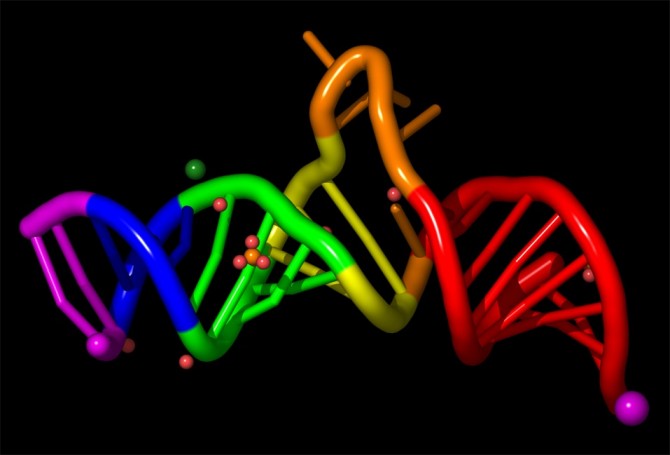Abiogenesis is appearing in a number of threads off topic There were many negative views of abiogensis. This is the inspiration for this thread.
This version actually proposes the 'warm pond' hypothesis,' but it could have taken place in several different environments.
First reference:
LIFE'S FIRST SPARK RE-CREATED IN THE LABORATORY
A fundamental but elusive step in the early evolution of life on Earth has been replicated in a laboratory.
Researchers synthesized the basic ingredients of RNA, a molecule from which the simplest self-replicating structures are made. Until now, they couldn't explain how these ingredients might have formed.
"It's like molecular choreography, where the molecules choreograph their own behavior," said organic chemist John Sutherland of the University of Manchester, co-author of a study in Nature Wednesday.
RNA is now found in living cells, where it carries information between genes and protein-manufacturing cellular components. Scientists think RNA existed early in Earth's history, providing a necessary intermediate platform between pre-biotic chemicals and DNA, its double-stranded, more-stable descendant.
However, though researchers have been able to show how RNA's component molecules, called ribonucleotides, could assemble into RNA, their many attempts to synthesize these ribonucleotides have failed. No matter how they combined the ingredients — a sugar, a phosphate, and one of four different nitrogenous molecules, or nucleobases — ribonucleotides just wouldn't form.
Sutherland's team took a different approach in what Harvard molecular biologist Jack Szostak called a "synthetic tour de force" in an accompanying commentary in Nature.
"By changing the way we mix the ingredients together, we managed to make ribonucleotides," said Sutherland. "The chemistry works very effectively from simple precursors, and the conditions required are not distinct from what one might imagine took place on the early Earth."
Like other would-be nucleotide synthesizers, Sutherland's team included phosphate in their mix, but rather than adding it to sugars and nucleobases, they started with an array of even simpler molecules that were probably also in Earth's primordial ooze.
They mixed the molecules in water, heated the solution, then allowed it to evaporate, leaving behind a residue of hybrid, half-sugar, half-nucleobase molecules. To this residue they again added water, heated it, allowed it evaporate, and then irradiated it.
At each stage of the cycle, the resulting molecules were more complex. At the final stage, Sutherland's team added phosphate. "Remarkably, it transformed into the ribonucleotide!" said Sutherland.
According to Sutherland, these laboratory conditions resembled those of the life-originating "warm little pond" hypothesized by Charles Darwin if the pond "evaporated, got heated, and then it rained and the sun shone."
Such conditions are plausible, and Szostak imagined the ongoing cycle of evaporation, heating and condensation providing "a kind of organic snow which could accumulate as a reservoir of material ready for the next step in RNA synthesis."
Intriguingly, the precursor molecules used by Sutherland's team have been identified in interstellar dust clouds and on meteorites.
"Ribonucleotides are simply an expression of the fundamental principles of organic chemistry," said Sutherland. "They're doing it unwittingly. The instructions for them to do it are inherent in the structure of the precursor materials. And if they can self-assemble so easily, perhaps they shouldn't be viewed as complicated."

